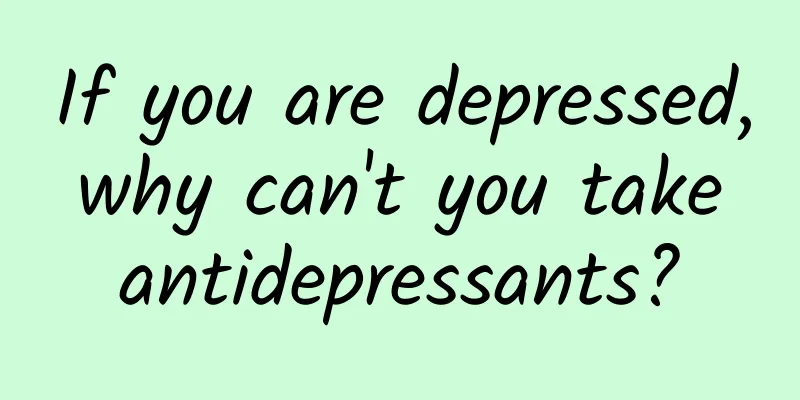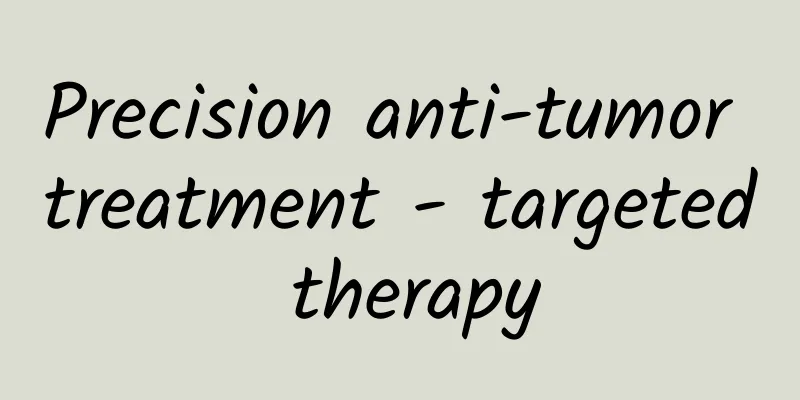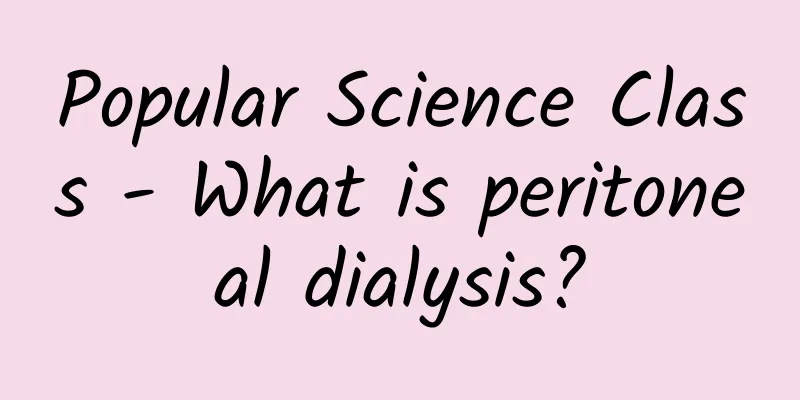If you are depressed, why can't you take antidepressants?

|
This is the 3722nd article of Da Yi Xiao Hu Aunt Zhang's son is handsome, smart, and has a good job. He is the "other people's child" that parents often talk about. However, for some reason, he has been frowning and sighing recently. He no longer likes the games and sports that he used to be interested in. He doesn't like to talk and doesn't go out. Aunt Zhang's nephew suffers from depression and has similar symptoms. She thought, "My son must have depression too." Considering her son's future and privacy, Aunt Zhang asked for her nephew's medicine for her son. After taking the medicine for a week, there was no effect, and her son showed symptoms such as temper tantrums, so he went to the hospital for treatment. The doctor diagnosed "bipolar disorder-depressive episode" and did not recommend taking antidepressants. Aunt Zhang couldn’t understand why people who are depressed are not allowed to take antidepressants??? Q1: What is depression? Depression, also known as depressive disorder or unipolar depressive disorder, refers to a type of mood disorder caused by various reasons with significant and persistent low mood as the main clinical feature. Clinically, it mainly manifests as low mood, loss of interest and pleasure, decreased energy, difficulty concentrating, memory loss, slow thinking, low self-esteem, lack of self-confidence, sense of worthlessness, belief that the future is bleak, negative words and deeds, and symptoms such as sleep disorders and loss of appetite. Q2: What is bipolar disorder? Bipolar disorder refers to a type of mood disorder that clinically has both manic or hypomanic episodes and depressive episodes. Manic episodes are characterized by high mood, increased interest and motivation, and increased verbal behavior. Hypomania is similar to manic symptoms, but the severity of symptoms and the level of social function impairment do not reach the level of manic symptoms (for example, the patient's professional ability is slightly impaired or not impaired). Depressive episodes, on the other hand, have core symptoms such as low mood, decreased interest, fatigue, and slow thinking and behavior (similar to the manifestations of depression). Q3: Drug treatment for depression Patients with depression are treated with antidepressants such as paroxetine, escitalopram, venlafaxine, mirtazapine, etc. During the entire clinical phase, symptom clusters that meet the diagnostic criteria for manic or hypomanic episodes should not appear. Once they appear, they should be diagnosed as bipolar disorder. Q4: Drug treatment for bipolar disorder According to the domestic and international guidelines for the treatment of bipolar disorder, it is recommended that patients with bipolar disorder use mood stabilizers as the main treatment drug regardless of the type of episode. Commonly used mood stabilizers include lithium carbonate, valproate, lamotrigine, etc. Atypical antipsychotic drugs such as quetiapine and olanzapine also have good mood stabilizer effects, so they are also commonly used in the treatment of bipolar disorder. Avoid using antidepressants to prevent mania and frequent episodes, or rapid cycling. For patients with bipolar disorder-depressive episodes who are ineffective with mood stabilizers alone, and whose depressive symptoms are severe, antidepressants can be combined with mood stabilizers, but attention should be paid to the risk of turning into a manic episode. Therefore, antidepressants should not be used to treat depressive episodes. Q5: The recognition and awareness rates of bipolar disorder are low Because hypomanic episodes are mild, they have little or no impact on social functions, and some even have a positive impact on social functions, so many patients or people who know about it do not feel abnormal. In addition, most hypomanic patients do not admit that they are sick, try to describe their symptoms as mild as possible, and refuse treatment. Moreover, most bipolar disorder patients first develop depression. Therefore, bipolar disorder is often missed or misdiagnosed. Each of us has emotions, and emotions are the state of our inner feelings expressed through the body. A good emotional state helps individuals to exert their enthusiasm, while a negative emotional state makes people lazy, negative, and unmotivated. Continuous overly excited or overly depressed emotional states are pathological emotional states. When relevant symptoms appear, it is recommended to seek help from professional medical institutions to avoid delaying the disease or causing secondary damage. Author: Shanghai Fengxian District Mental Health Center Psychiatry Department Attending Physician Wang Jinde |
Recommend
What to do if pregnancy does not implant
Pregnancy is the combination of sperm and egg to ...
The role of gynecological red light therapy device
Gynecological diseases may cause excessive vagina...
How to make the cervix open faster
Pregnant women who choose to give birth naturally...
Will the misted red light damage the cervix?
Gynecological diseases are very common diseases i...
What are the treatment measures for bacterial vaginosis?
Due to the physiological peculiarities of women, ...
Strategy Analytics: Global Smartphone Application Processor Market Reaches USD 25 Billion in 2020, Up 25% YoY
Strategy Analytics' Handset Component Technol...
Can I drink red bean and barley soup during menstruation?
Red bean and barley soup is a very common food an...
How to check endocrine disorders? Authoritative experts tell you
Endocrine disorders in women have many disadvanta...
Why do I feel backache after curettage?
Artificial abortion is a remedial measure after a...
If you have high blood pressure, you should eat like this!
Author: Xue Qingxin, registered dietitian Reviewe...
There is blood in my underwear when I am pregnant
Some pregnant women will experience a small amoun...
New idea for epidemic prevention: giving vaccines to wild animals
From COVID-19 to rabies vaccines, humans have pai...
Does pregnancy with scanty menstruation affect the baby?
Some women usually have less menstrual flow and w...
Can I use hemorrhoid medicine during breastfeeding?
Hemorrhoids bring a lot of trouble to people, bec...









